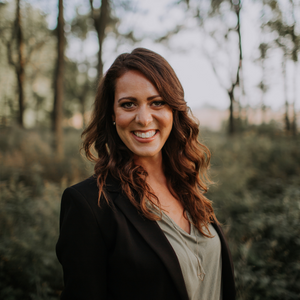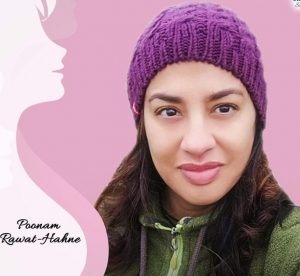As ATTA learned from our recent women in adventure travel research, women business owners still have a way to go and one new business venture, wmnsWORK, is seeking to make a difference. Started by ATTA member, Iris Serbanescu, wmnsWORK’s three-month-long accelerator programs offer an opportunity for women and non-binary entrepreneurs to learn from experts, create community, and build the support they need to succeed. In this interview, we’ll hear from Iris as well as Poonam Rawat-Hahne who is finishing wmnsWORK first pilot accelerator.
Interview with Iris Serbanescu

Q: What inspired you to start the accelerator program?
A: wmnsWORK was born out of a quiet moment during the pandemic in 2021 when I was on an inward journey to find answers for how I could put my skills and network to use to help tourism businesses in need. Throughout my 10-year tourism career, I have worked in the adventure, luxury, and tech sectors (directly with small-and-medium-sized businesses in all cases), and noticed that despite the fact that most of the industry is made up of women, many of them were working on the front lines or lower-level management, with only a small percentage in executive leadership and ownership. As a woman myself, I began looking around and observing that much of the money and power in the industry was disproportionately allocated. Of course, this is a systemic issue, just like in many other industries, but I also noticed there were very few formal support systems in place for women and non-binary folks specifically for the early stages of entrepreneurship (from ideation to pre-revenue), which is arguably the most difficult time with many barriers – self-doubt, fear, judgment from friends and family, and more. This is a time that requires the most support, encouragement, and knowledge-gathering, yet with all the travel associations and organizations that exist to support tourism enterprises, there were truly no ecosystems that focused specifically on early-stage entrepreneurship for underrepresented folks. It was this realization that led me to harness my networks, knowledge, and passion for working with small businesses and to create a program where women and non-binary entrepreneurs could thrive, learn, and make sincere connections in a small-group setting that would accelerate the growth of their businesses - including those new to tourism with no prior industry background. This is especially important in a time when we are building back the industry after the devastating impacts of the pandemic.
Q: After your first pilot program, what are some key takeaways you have seen members of the cohort leave with that will lead them to success?
A: As of now, we are only halfway through the pilot program, but so far the feedback has been positive. Two of the members (who are a couple of years into running their businesses now) say they really wish they had this program when they had first started, not only for the expert guidance and the education but also for the support from the other women in the group. Entrepreneurship can be super lonely, especially before you build your network, and this is a great place to gain honest feedback, a place to come with your questions and to feel like people genuinely care about and are invested in your success.
In terms of tangible takeaways, of course, a business plan, budget, and pitch deck are key deliverables that are part of any standard accelerator program, but one of the most fundamental benefits has been the connections members have made with the various mentors, investors, and subject matter experts who are part of the program's curriculum delivering masterclasses and mentoring. I believe we all get to where we are because of our networks, and this program gives direct access to relationships that can lead members down transformational paths, like finding key legacy partners for their tour businesses or funding for their hotel businesses.
Q: How have you positioned your program differently to address that women and non-binary entrepreneurs may lead and do business differently?
A: Something I thought about a lot when designing the program was about the systems and constructs that have historically - and intersectionally - excluded women and non-binary entrepreneurs. In practice, this came down to two things: a) valuing the lived experience of our experts and mentors just as much as their resumes, and b) normalizing failure and resiliency over success through sharing.
The business community in tourism tends to measure experts' credibility by their professional accomplishments, and that often results in us hearing a lot of success stories, but nothing about what it really took to get there. I think we have a lot more to learn from people who have failed in their efforts, for example, have faced barriers, and still found ways to stay resilient.
Likewise, we have just as much (if not more) to learn from folks who have navigated the industry by the beat of their own drum as we do from the c-suite crowd. The team leadership approach of a boutique hotel owner from Yellowknife, for example, is going to be so different from that of a resort GM. The takeaway will not only include effective insights on management - it will illustrate that there's no prescription to running a successful business, which I think participants will find really validating.
Q: As an entrepreneur yourself what is one piece of advice you give your cohort members?
A: Start now, no matter what. Do not wait until you think you're 'ready'. It truly doesn’t matter if you don’t believe you have enough experience or knowledge or contacts – once you make the decision to start despite all of it, the journey begins to unfold in your favour. I think innately, women are incredibly resourceful and intuitive, but we have been conditioned to believe that we don’t have enough or simply aren’t enough, to take big bold risks and trust ourselves to succeed. I want this program to be the antidote to that - a playground for women and non-binary folks to take BIG risks and be supported in their pursuit of their success.
Interview with Poonam Rawat-Hahne:

Q: You are an Ambassador for the ATTA now and you have a business you have been nurturing and gaining much recognition for – what inspired you to want to go through the wmnsWORK accelerator now?
A: True, my project has gained a lot of recognition, and thanks to ATTA for the ambassador honor. However, even after receiving so much praise, I could not form enough partnerships to sustain the project and support the local communities, especially the women. The tagline ‘women travel accelerator’ attracted me the most, and it seems very promising till now.
Q: What is one piece of business advice that you are going to implement that you wish you had known about before? And, why is it so important for you?
A: One of the most essential learnings was regarding mindset. I started my project from scratch and had to work with the stigma of the communities. I often face challenges that put my spirit down, but I can stay in the right state of mind after the accelerator sessions.
Q: Can you share a story from your wmsnWORK experience that illustrates the power of community and support?
A: I have not yet completed my wmnsWORK but I already see that we all try to understand how we could offer/share our experience/knowledge with each other in our catch-up sessions. Everyone is trying to support each other genuinely. Besides this, Iris and our mentors are incredible and are very supportive.
Q: Tell us about your business idea and why you as a woman entrepreneur are uniquely suited to make it successful?
Fernweh is offering immersive, transformational experiences off the beaten path of the Indian Himalayas while positively impacting society and the environment. I work with underprivileged communities, especially widows and victims of domestic violence. I am launching a boutique eco-retreat soon; it will be run by local women and youth. As I am a woman, local women trust me; they feel I am one of them and feel comfortable sharing their concerns. I can speak to them profoundly about their insecurities and offer them my support/solution through my regenerative travel project. As we are offering transformational journeys being a woman benefits my situation.
The wmnsWORK May cohort is now open for applications. Successful applicants who are part of the cohort have an opportunity to become an ATTA business member upon completion of the program.
